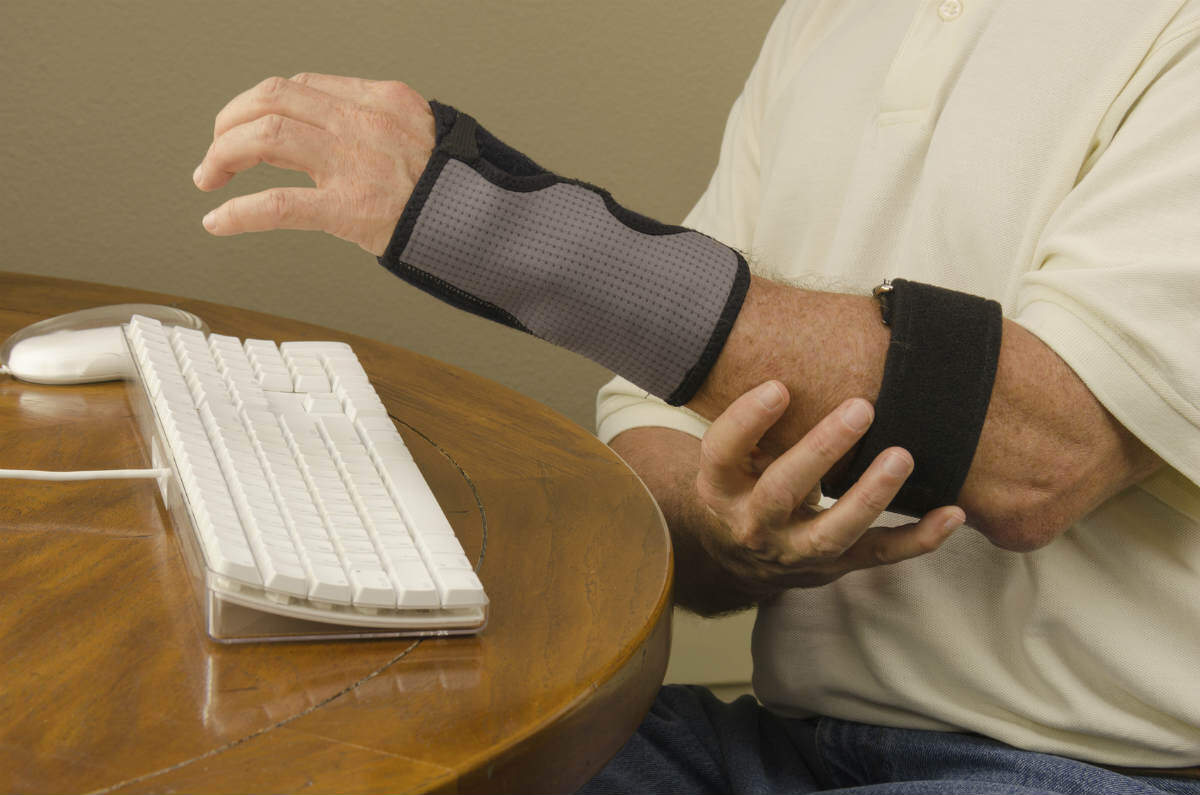Repetitive stress injuries are a common reason for work comp claims.
When we think of work-related injuries, we often think of serious injuries such as slips and falls, machinery-related accidents, or injuries due to a hazardous work environment. Not much attention is paid to repetitive stress injuries, although they are one of the most common reasons for workers’ compensation benefits.

What is Repetitive Stress Injury?
Repetitive stress injuries are those that develop over a period of time. Such injuries are caused by the overuse of certain joints or muscles, causing stress in that joint or muscle. For example, a worker in a warehouse who lifts heavy loads can injure his or her back due to the repeated pressure and strain. Hernia, sciatica, carpel tunnel syndrome, and ulnar nerve entrapment are all examples of work-related repetitive stress injuries. These injuries are painful and affect a worker’s ability to perform job duties.
Work Comp Benefits for Repetitive Stress Injuries
According to the Martindale-Nolo Research’s 2015 workers’ compensation study:
- On average, workers who suffer from work-related repetitive stress injuries have received around $13,600 to $22,100 as part of their compensation claim.
- A filed compensation claim takes about one year and four months to clear.
- About 75 percent of workers who filed a claim for benefits were compensated, whereas 25 percent were not.
- 57 percent of workers received compensation of $10,000 or less, 29 percent received between $10,000 to $40,000, and 14 percent received compensation awards higher than $40,000.
- Where other types of compensation claims took about 15.7 months to clear, claims related to repetitive stress injuries took slightly longer – 16.1 months.
- About 48% of workers who had filed for repetitive stress injury claims were initially denied compensation.
- About 40% of injured workers denied compensation had to file for an appeal or request a hearing to resubmit their compensation claim.
St. Louis Workmens Comp Attorney
Repetitive stress injuries develop over a period of time without any single traumatic event to prove development of the injury. The nature of repetitive stress injuries are complex and it is usually difficult to get the insurance companies to pay for repetitive stress injury claims. The study claims that those who hired lawyers for filing claims had higher settlement amounts and were more satisfied than those who did not hire lawyers. Making a claim for a repetitive stress injury claim can be very complicated. If your work comp claim has been denied, talk to a St. Louis workmens comp attorney. Call The Law Office of James M. Hoffmann at (314) 361-4300 for a free consultation.
Work-Related Injuries
Work-Related Injuries
Work Related ACL Injury
Leg Amputation
Finger Amputation
Ankle Injury
Ankle Replacement
Arthroscopic Surgery
Work Related Arthritis
Accidental Asphyxiation
Work Related Asthma
Avulsion Injury
Back Injury at Work
Back Pain from Work
Lower Back Pain at Work
Chronic Back Pain
Head Injury Internal Bleeding
Internal Bleeding after Injury
Blood Related Illness
Broken Bones
Brain Injuries
Traumatic Brain Injury
Bursitis Work Related
Burn Injury at Work
Electric Burn
Chemical Burn
Calcaneus Fracture
Sudden Cardiac Arrest
Cardiovascular Disease
Carpal Tunnel Work Related
Cartilage Injury
Cervical Disc Replacement
Cervical Fusion
Chronic Illness
Work Related Chronic Pain
Work Related Concussion
Contagious Disease
Work Related COPD
Skin Corrosion
CRPS Disease
Crush Injuries
Cubital Tunnel Syndrome
Work Related Death
Degenerative Bone Disease
Degenerative Disc Disease Work Related
Reflex Sympathetic Dystrophy
Work Related Tennis Elbow
Elbow Injury
Epicondylitis at Work
Work Related Eye Injury
Fibromyalgia
Work Related Foot Injuries
Work Related Injuries to the Hand
Hand Arm Vibration Syndrome
Work Related Head Injury
Closed Head Injury
Open Head Injury
Work Related Hearing Loss
Heart Attack Work Related
Stroke at Work
Heat Stroke at Work
Intracerebral Hemorrhage
Hernia Work Related Injury
Work Related Herniated Disc
Hip Fracture
Hip Replacement
Hip Injuries
Intracranial Injury
Broken Jaw
Work Related Knee Injuries
Knee Fracture
Laceration
LCL Injury
Legionnaires Disease
Ligament Tear
Limb Loss
Lumbar Disc Replacement
Lumbar Fusion
Lumbar Spinal Fusion
MCL Tear
MCL Injury
Meniscus Tear
Work Related Mental Illness
Mesothelioma from Work
Work Related Muscle Problems
Work Related Neck Pain
Work Related Neck Injury
Nerve Damage from Work Related Injury
Neurological Disorders
Occupational Disease
Organ Damage
Pain and Suffering from Work Related Injury
Paralysis
Patella Fracture
Pelvic Fracture
Plantar Fascitis
Pre Existing Work Related Injury
Work Related PTSD
Radiation Sickness
Repetitive Stress Injury
Rhabdomyolysis
Rotator Cuff Tear
Rotator Cuff Surgery
Work Related Rotator Cuff Injury
Sciatica Work Related
Shift Work Disorder
Shoulder Fusion
Shoulder Impingement
Shoulder Injury
Work Related Shoulder Pain
Sick Building Syndrome
Skull Fracture
Spinal Cord Injury at Work
Spondylolysis
Sprain at Work
Work Related Repetitive Strain Injury
Work Related Stress
Stress Fracture
Subdural Hematoma
Work Related Tendonitis
Lost Tooth at Work
Trigger Finger Work Related
Vertebroplasty
Vision Impairment
Lost Vision at Work
Work Related Wrist Injuries
